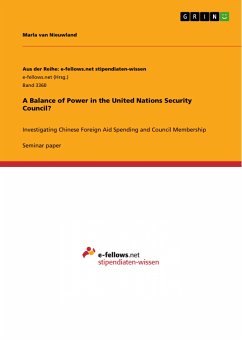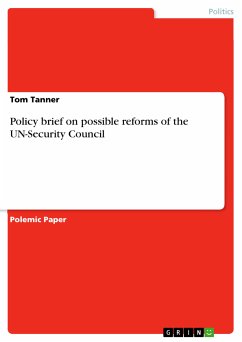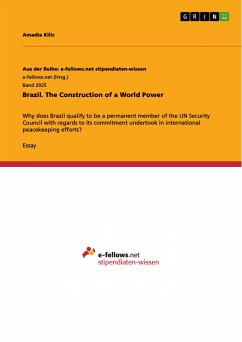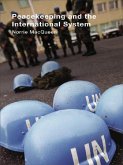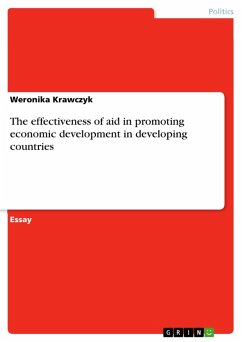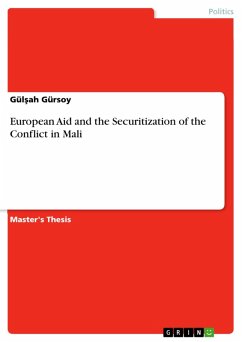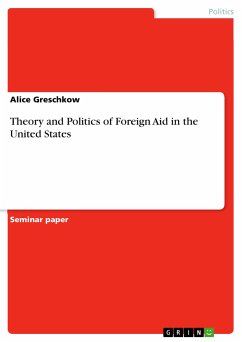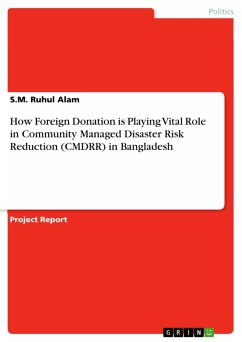Seminar paper from the year 2019 in the subject Politics - Topic: International relations, grade: 1,3, University of Potsdam, course: Security Council and Crisis Management, language: English, abstract: Does China challenge US dominance in the UNSC by increasing foreign aid for non-permanent members? This research question will be the focus of the paper. With a look at Chinese spending on foreign aid the assumption of buying support does not seem far-fetched. Chinese foreign aid could potentially be even more effective than US aid in strategically buying support in the UNSC, because it comes without any strings attached and gives state leaders more freedom to decide over the allocation of resources. According to the realist school of thought, international politics are power politics and states constantly work to increase their power - be it economic or military power - relative to each other. And although the United States can be seen as a hegemon since the end of the cold war, unipolarity is regarded by realists as the least durable of all power configurations. China is almost caught up to the United States in terms of military spending and economic growth, the population is three times that of the US and China can already be seen as a regional hegemon in Asia. However, even though China has become more aggressive and vocal in global politics since Xi Jinping's shift away from the "hide and bid policy" and scholars have indeed observed subtle strategies of Beijing challenging and resisting the authority of the hegemon, it remains understudied, if China also attempts to challenge US dominance in the UNSC. If the expectation of a balance of power by realists were true though, we might expect China not to let the US dominate - especially in a critical area such as international security politics - the decisions of the UNSC by strategically buying votes or support with foreign aid.
Dieser Download kann aus rechtlichen Gründen nur mit Rechnungsadresse in A, B, BG, CY, CZ, D, DK, EW, E, FIN, F, GR, HR, H, IRL, I, LT, L, LR, M, NL, PL, P, R, S, SLO, SK ausgeliefert werden.

